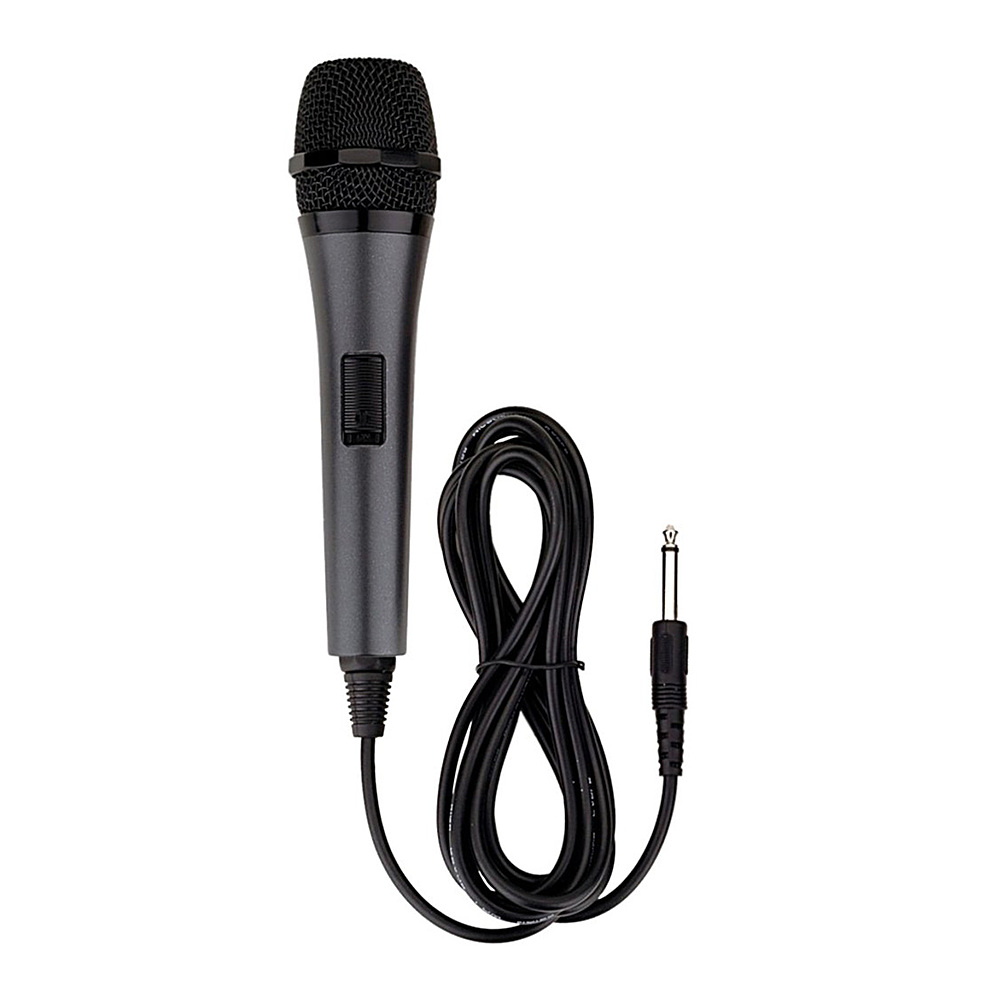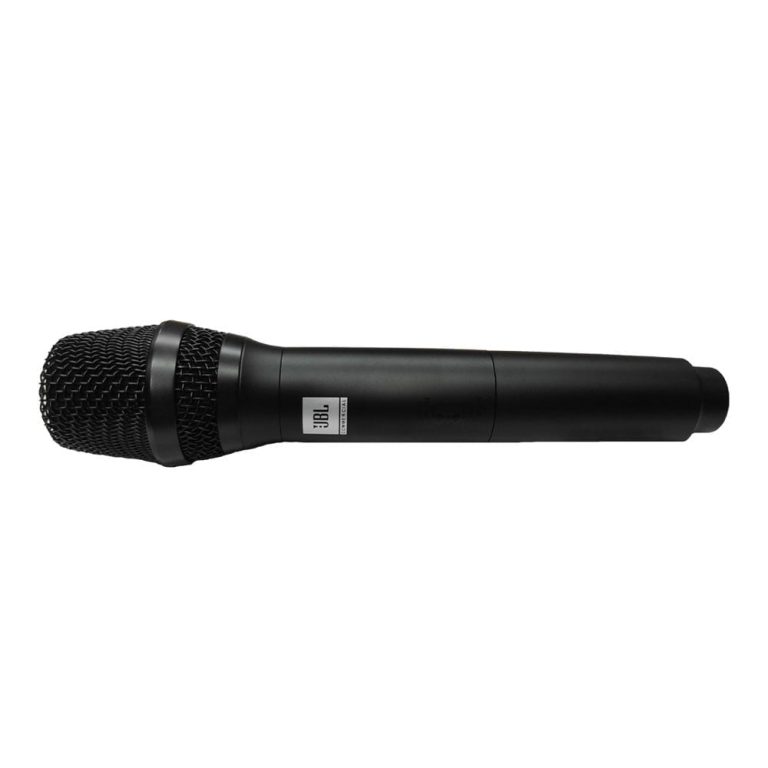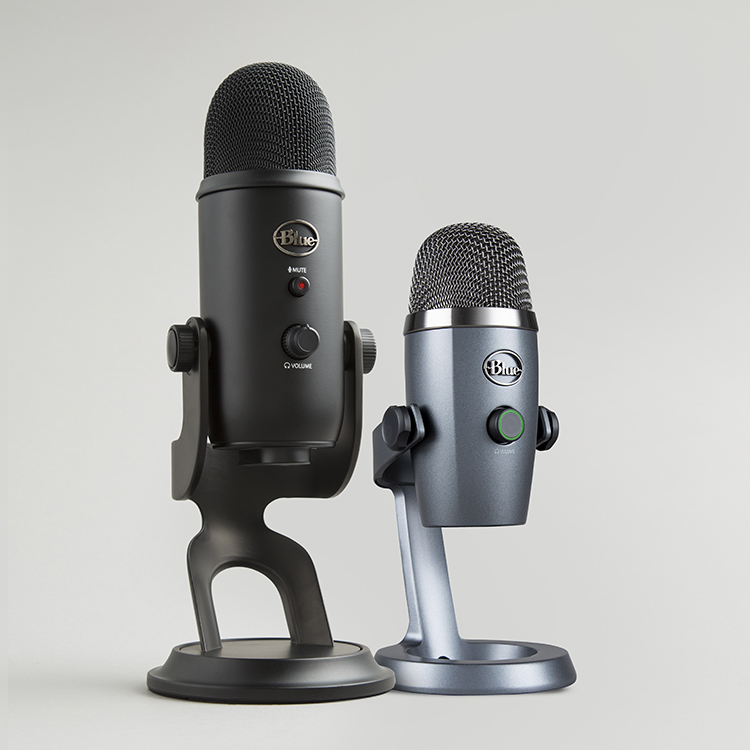Aspiring vocalists need the right equipment to capture the full range and expression of their voice. A high-quality singing microphone can make all the difference between a performance that’s merely good and one that truly resonates with listeners. But with so many options on the market, it can be challenging to find the perfect mic. In this guide, we will look at some of the best singing microphones suited for vocalists starting on their musical journey.
Understanding Microphone Types
Dynamic Microphones: Robust and Versatile
Dynamic microphones are known for their durability and ability to handle high sound pressure levels, making them ideal for live performances. Often favored by rock vocalists, these microphones provide a warm sound and are less sensitive to ambient noise, which is excellent for use in loud environments.
Condenser Microphones: Clarity and Sensitivity
Condenser microphones excel in studio settings due to their sensitivity and ability to capture a broad range of frequencies. These mics require external power, usually provided through phantom power, and offer clarity and precision that’s perfect for capturing the nuances of a vocal performance.
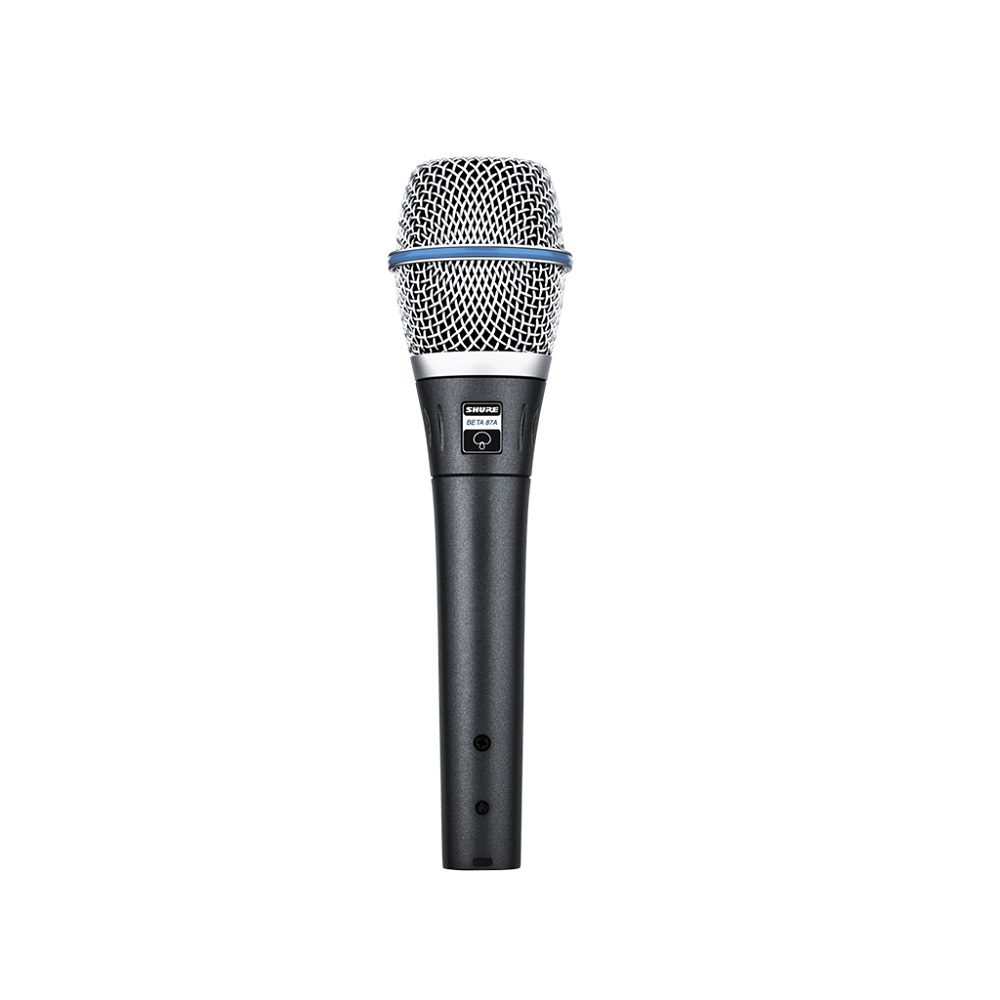
Top Picks for Beginners
Shure SM58: The Industry Standard
The Shure SM58 has been a staple for live vocal performances for decades. Known for its reliability and sound quality, it offers an impressive combination of durability and clarity, making it an excellent choice for vocalists who are serious about their craft.
Audio-Technica AT2020: Affordability Meets Quality
The Audio-Technica AT2020 is a budget-friendly condenser microphone that doesn’t compromise on sound quality. It is an excellent option for aspiring vocalists recording in quiet spaces and those who need a mic that can accurately capture the detailed sounds of their voice.
Microphones for Advanced Singing Techniques
Rode NT1-A: Pristine Sound Reproduction
The Rode NT1-A is known for its low self-noise and high sensitivity, making it a top pick for vocalists practicing advanced techniques that require clean and precise audio capture. Its detailed sound reproduction makes it excellent for studio work and capturing vocals with high dynamics.
Sennheiser e835: Tailored Frequency Response
The Sennheiser e835 dynamic microphone stands out with its smooth on-axis response and excellent feedback rejection. This makes it suitable for singers who employ sophisticated vocal techniques and need a microphone that can keep up with their expressive range without capturing excessive noise.
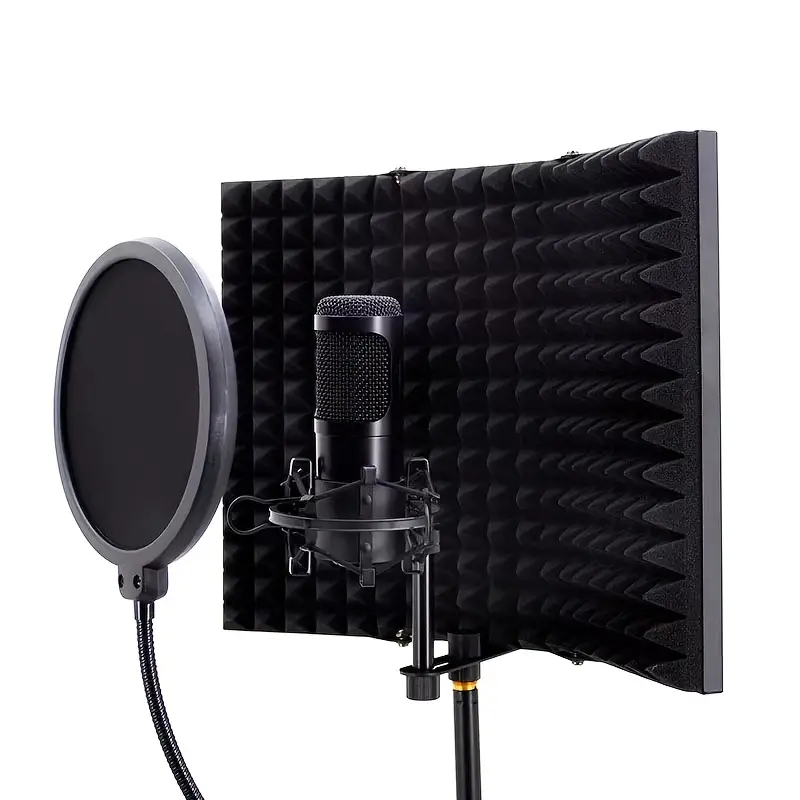
Microphone Features to Consider
Polar Patterns: Pick the Right One
The polar pattern of a microphone determines how it picks up sound from various directions. Vocalists should look for cardioid or supercardioid polar patterns, which focus on capturing sound from the front, minimizing background noise and feedback from other angles.
Frequency Response: Capture Every Note
Frequency response refers to the range of frequencies a microphone can pick up. Aspiring vocalists should seek microphones with a broad frequency response to ensure that both the low and high ends of their voice are accurately represented in the recorded audio.
Setting Up Your Singing Microphone
Proper Mic Positioning
Setting up your microphone correctly can significantly affect the quality of sound capture. Singers should position the mic at the right distance and angle to ensure the best vocal tone and minimize plosives and breath noises.
Using Accessories for Enhanced Sound
Accessories like pop filters and shock mounts can enhance microphone performance. A pop filter reduces plosive sounds that can cause peaks in the audio, while a shock mount isolates the microphone from vibrations and handling noise.
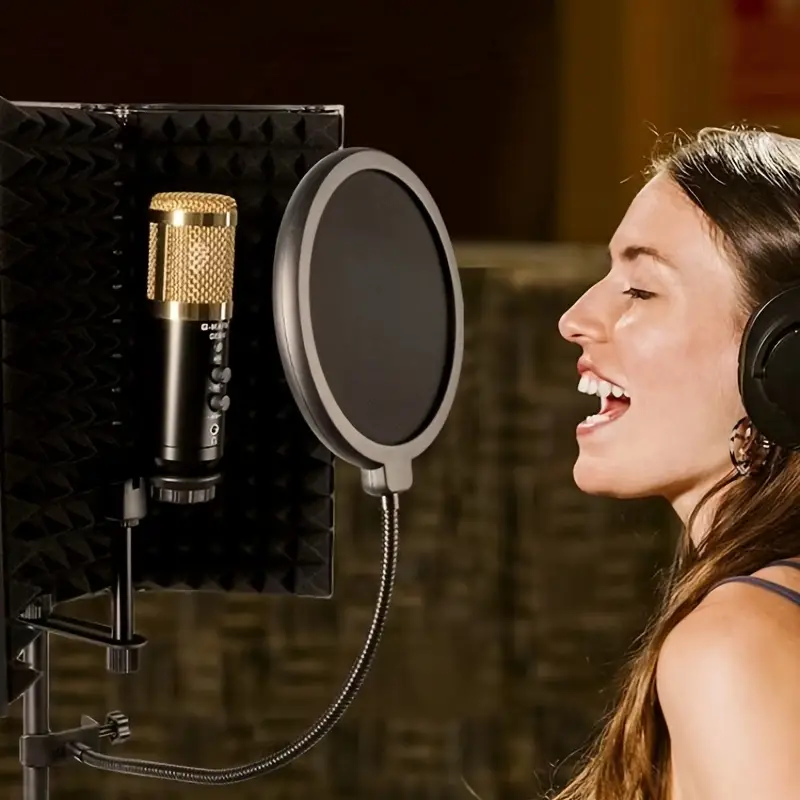
Investing Wisely in Your Craft
Balancing Cost and Quality
Aspiring vocalists must strike a balance between affordability and quality. While investing in a high-quality microphone is important, it’s also wise to consider your level of experience and how much you are willing or able to spend.
The Long-term View
Purchasing a microphone is an investment in your singing career. Think about the long-term benefits of a higher-priced microphone with better performance and durability versus the immediate cost savings of a cheaper model.
Maximizing Microphone Performance
Harnessing the Power of Equalization
Learning to use equalization (EQ) can greatly enhance the sound quality of your vocals. EQ allows you to adjust the balance of frequencies to complement your voice’s unique characteristics or to fit the song’s style. With the right adjustments, even a mid-range microphone can produce results that rival more expensive models.
The Significance of Acoustic Treatment
The environment where you record or perform influences how your microphone captures sound. To maximize your microphone’s performance, consider recording in a space with proper acoustic treatment. This reduces unwanted echoes and reverberations, allowing your microphone to capture a clearer representation of your voice.
Selecting the Right Microphone for Live Performances
Durability and Feedback Resistance
For live performances, choose a microphone that’s not only sonically reliable but also sturdy enough to withstand the rigors of the stage. Microphones like the Shure SM58 are popular because they resist feedback well and can handle being dropped or suffering other mishaps without losing performance quality.
Wireless Options for Mobility
If you’re an active performer who likes to move around on stage, a wireless microphone system could be a worthwhile investment. These systems free you from the constraints of cables, offering greater mobility without sacrificing sound quality.
Exploring Specialty Microphones
Ribbon Microphones for Warmth
A ribbon microphone, known for its warm sound characteristics, can be an excellent choice for capturing vocals with a vintage feel. These mics are particularly sensitive and work best in a controlled studio environment where you’re looking to add a bit of old-school richness to your recordings.
USB Microphones for Simplicity
Aspiring vocalists often start their recording journey with USB microphones. These devices are simple to use, requiring only a USB connection to start recording. While not always matching the audio quality of professional XLR mics, they’re a convenient and cost-effective option for beginners.
Nurturing Your Vocal Skills Alongside Equipment
The Microphone as a Tool for Growth
Remember that the best microphone is one that grows with you as you refine your vocal techniques. Opt for one that captures your current skills clearly but also has the fidelity to represent the nuances you’ll develop as you advance.
Regular Practice and Equipment Mastery
Regularly practicing with your chosen microphone is key to understanding how it responds to your voice. The more you use it, the better you’ll be able to exploit its capabilities and recognize when an upgrade is necessary as your skill level improves.
Understanding the Role of Microphone Preamps
The Importance of a Good Preamp
A microphone preamp amplifies your microphone’s signal before it reaches your recording device. A good preamp can imbue warmth and clarity, making even an entry-level microphone sound significantly better. Investing in a quality preamp can be just as important as the microphone itself for achieving professional-sounding vocals.
Integrating Preamps with Home Setups
Many audio interfaces come with built-in preamps. However, standalone preamp units can offer higher quality and more control over your sound. If you’re serious about achieving the best vocal tone, consider adding a standalone preamp to your home recording setup.
In conclusion, the right microphone can elevate an aspiring vocalist’s performance, capturing the full essence of their voice. Whether you’re singing live or recording in a studio, choosing the best microphone is crucial. It involves understanding different microphone types. Evaluating specific features is also important. Setting up the microphone correctly is essential. Balancing cost with quality is a key consideration. Consider your long-term needs as well. Vocalists can invest in a microphone. A good microphone will serve them well. It will be useful as they grow and refine their talents. With the right gear, the path to vocal excellence becomes a journey of artistic discovery and pure sonic expression.
